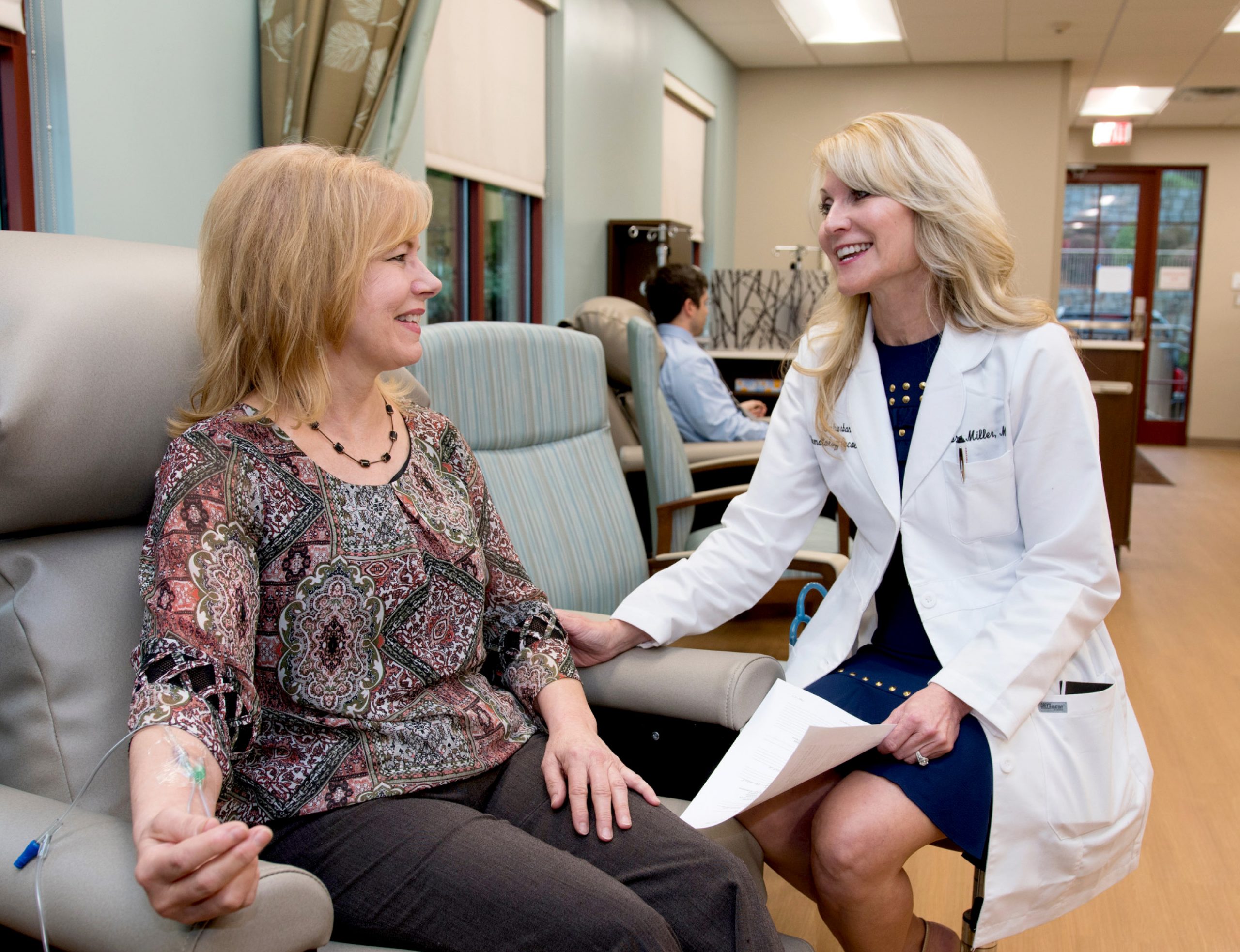Despite the fact that it’s something almost everyone can relate to, constipation isn’t exactly a fun topic. It must be all the straining, bloating and discomfort that has us all wary — and rightfully so. After all, if you don’t like the way constipation makes you feel, chances are it isn’t doing your digestive tract any favors. In fact, it may actually be upping your risk of developing colorectal cancer.
So, should you be worried the next time you’re feeling a little backed-up? “Not exactly,” says Debra Miller, MD, an oncologist at GMC’s Center for Cancer Care-Hamilton Mill. “The constipation-colorectal cancer connection is complicated.”
DOES CONSTIPATION INCREASE YOUR CANCER RISK?
When it comes to colorectal cancer, there are a lot of lifestyle factors that can increase your risk, but the jury is still out on whether or not constipation is one of them. “While constipation may not directly cause colorectal cancer, there may still be a connection,” explains Dr. Miller. According to several recent studies, this is why:
• Chronic constipation may cause the amount of bile acids and other compounds to become more concentrated, so it’s best if your bowels move regularly.
• Over time, your digestive tract is exposed to higher amounts of these compounds for longer periods of time.
WHAT ABOUT LAXATIVES?
“When constipation strikes, many of us have a one-track mind — it’s all about finding relief ASAP,” says Dr. Miller. Enter laxative options galore — some of the many go-to laxatives include: bulking agents, lubricant, emollient, stimulant and osmotic laxatives. But are all they all created equal? The short answer is no.
“On the one hand you have bulking agents, also known as fiber-based laxatives, which increase water content and bulk up stool, the same way that fruits and veggies do,” Dr. Miller says. “In fact, it is believed that these laxatives may actually reduce your risk of colorectal cancer.”
“However, if you use lubricant laxatives, emollient laxatives or stimulant laxatives, you could be increasing your risk of electrolyte imbalances, laxative dependence, chronic constipation and possibly colorectal cancer,” adds Dr. Miller.
ARE THERE HEALTHY WAYS TO RELIEVE CONSTIPATION?
“I can actually do you one better,” says Dr. Miller. “I’ll tell you the top tips to prevent constipation, as well as help prevent colorectal cancer.” As it turns out, many of the same factors that decrease your risk of constipation also decrease your risk of colorectal cancer. “To keep your digestive tract happy, healthy and cancer- free, remember to get routine exercise, eat red meat and dairy in moderation, drink plenty of water and fill your diet with fiber-rich foods.”
Make sure you don’t get stuck. With the wrong care that is. With an extensive array of resources available to you through Gwinnett Medical Center, you can learn more about colorectal cancer and screen for it — all in the comfort of your own home.













